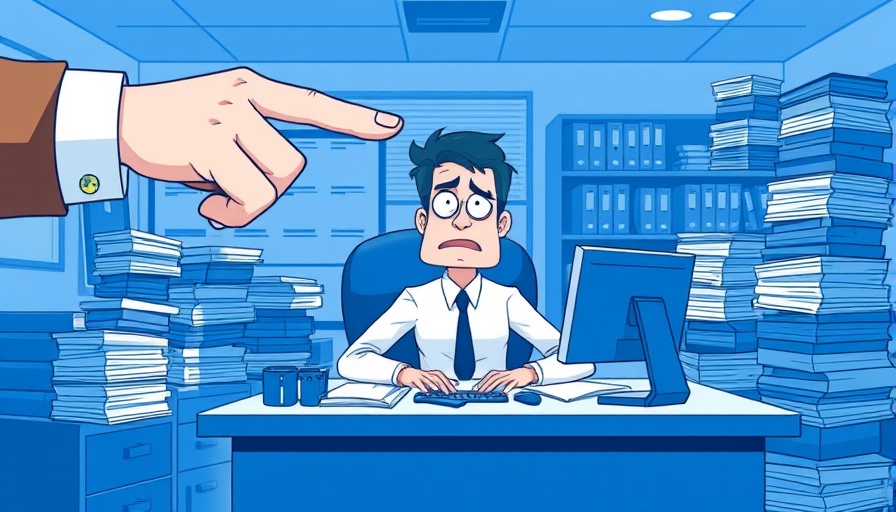
When Work Becomes a Health Hazard: The Case of a Bengaluru Employee
In a poignant reminder of the toll modern work culture can take on our health, a Bengaluru man has taken to Reddit to share his alarming experience of gaining 24 kg over the past 2.5 years, all while grinding through 14 to 16 hours of work each day. This story not only sheds light on his personal struggles with workplace toxicity, but it also raises important questions about employee wellness and balance in today's fast-paced, demanding corporate environment.
The Mental and Physical Toll of a Toxic Workplace
As the Bengaluru employee detailed in his post, his relentless work hours have left him feeling like an 'ideal corporate slave.' His struggle is not unique; according to studies, long working hours and a toxic corporate culture can lead to serious health issues such as obesity, anxiety, and depression. In a society that often glorifies overwork, stories like his highlight the need for a shift in workplace norms and values.
Red Flags Ignored: When Your Job Affects Your Health
This man noticed significant changes affecting both his physical and mental health, including disrupted sleep patterns and chronic fatigue. The unfortunate reality for many professionals is that they often ignore these danger signs, continuing to push through their discomfort in an attempt to meet unrealistic expectations. Renowned health experts emphasize the importance of recognizing these red flags and taking action before they lead to grave consequences.
Support from the Online Community: A Solidarity Movement
The reactions on Reddit showcased how this individual’s post resonated with many others who've faced similar plights. Comments ranged from suggestions of quitting his job for the sake of mental well-being to sharing personal anecdotes of survival. This sense of community support is vital; it not only helps one feel that they are not alone but can also serve as a catalyst for change within the workplace. Collective consciousness about workplace wellness is crucial for fostering a healthier working environment for all.
Taking Action: Steps to Address Workplace Toxicity
For professionals facing similar situations, the first step toward improvement is recognizing the signs of burnout. Strategies such as setting firm work boundaries, prioritizing self-care, and seeking professional help can be beneficial. Additionally, companies must take accountability for creating a supportive culture, emphasizing mental health resources, and understanding the limits of their employees. Implementing flexible working hours and prioritizing balance can ultimately lead to improved morale and productivity.
A Call for Change: Why Employers Must Lead by Example
This incident shines a spotlight on a broader issue: the urgent need for systemic change in workplace culture. Businesses must lead by example, valuing work-life balance and health over sheer output and profit. Fair policies regarding working hours, sick leave, and mental well-being are essential for promoting a sustainable work environment. The future of work depends on our ability to foster healthier workplaces that prioritize the needs of employees.
Conclusion: The Path Forward
The story of the Bengaluru employee serves as a wakeup call. It propels the conversation about workplace toxicity and mental health to the forefront, urging both employees and employers to reevaluate their approaches to work. By prioritizing well-being, understanding the impact of stress, and fostering a supportive environment, we can work towards a healthier future in the workplace.
As we move forward in our careers, it's essential to advocate for our well-being and hold employers accountable for cultivating an environment conducive to both professional success and personal health.
 Add Row
Add Row  Add
Add 




 Add Row
Add Row  Add
Add 

Write A Comment